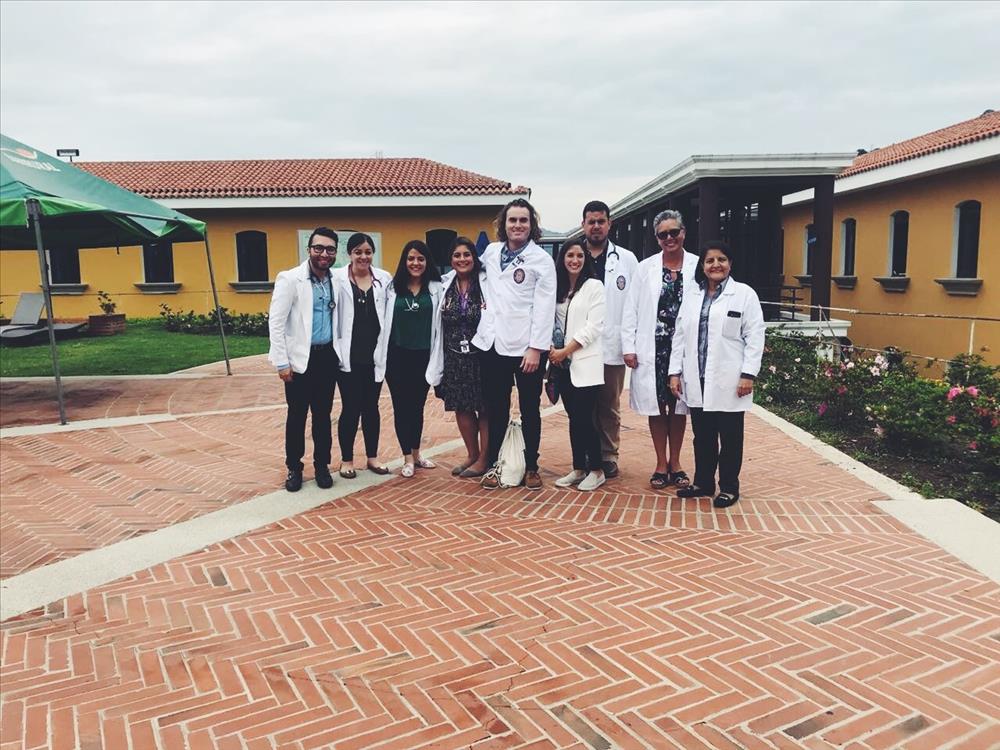Global Health & Social Medicine Electives
The Global Health & Social Medicine electives provide a structured global health immersion experience for students with dedicated supervision and teaching.
In order to further deepen learners’ capacity to understand and to serve vulnerable
populations both at home and abroad, LSUHSC offers several Global Health
experiences. Through preparatory workshops as well as international on-site
experiences, participating students embark on a journey of growth and discovery
towards becoming a well-rounded provider versed in the cultural humility and
resourcefulness necessary to care for the underserved.
“Becoming uncomfortable with the tolerance of global inequity may drive us to take
decisive action to build bridges, form community, and provide social and medical
support.” - Kyle Mistretta, MS3
FMMD 310 Course Overview:
This Global Health and Social Medicine course offers an introduction to health issues on a global scale and their complex relationship to biosocial contexts. Students will explore the relationship of global health issues to family medicine, primary care, and healthcare systems as a whole. The course will provide students with additional education in several areas including tropical disease, global health disparities, global health policy, and risk/benefit analysis of global health interventions. The impact of these issues on the U.S. healthcare system will also be explored. The Global Health and Social Medicine course will employ multiple educational modalities, including pre-course reading requirements, online modules, traditional didactics, and hands on clinical experience under the direct supervision of experienced physicians in an international setting. The international setting will also include interaction with in-country ministry of health regional healthcare stakeholders, and direct supervision of clinical activities consistent with the breadth of traditional family medicine (adult medicine, pediatrics, obstetrics, and geriatrics).
FMMD 410 Course Overview:
This 400 level course for senior students will explore global health issues in greater depth and for a longer time period than the 300 level elective for juniors. Students will explore the relationship of global health issues to family medicine, primary care, and healthcare systems as a whole. The course will provide students with additional education in several areas including topical disease, global health disparities, global health policy, and risk/benefit analysis of global health interventions. The impact of these issues on the U.S. healthcare system will also be explored. The Global Health and Social Medicine course will employ multiple educational modalities, including pre-course reading requirements, online modules, traditional didactics, and hands on clinical experience under the direct supervision of experienced physicians in an international setting. The international setting will also include interaction with in-country ministry of health, regional healthcare stakeholders, and direct supervision of clinical activities consistent with the breadth of traditional family medicine (adult medicine, pediatrics, obstetrics, and geriatrics).
Learning Objectives:
At the conclusion of the electives, students will be better able to:
- To develop clinical leaders in global health that are dedicated to reducing
health disparities in medically underserved communities both in the U.S.
and internationally - To gain a framework for improving health of individuals and communities in
resource limited areas - To gain skills in the use of a medical translator for collecting appropriate
history - To learn about tropical diseases found both in the U.S. and abroad
- To learn about and experience different cultures and increase cultural
awareness - To improve basic clinical and diagnostic skills to better function in resource
limited areas - To gain experience working with different health care systems
- To create more awareness about public health in rural areas in the U.S.
and abroad
Grading Scale : Pass/Fail
For information on LSUHSC’s Graduate Medical Education opportunities in Global
Health, click here.
Eligibility:
All medical students with no previous or pending disciplinary actions imposed by LSU Health Sciences Center are eligible to apply.
For more information and an application, please contact the course director:
Course Director:
Emilio A. Russo, MD FAAFP
Department Chair and Associate Professor
Chair, LSUHSC Committee on International Educational Experience
Marie Lahasky Professor of Family Medicine
LSU Health Sciences Center School of Medicine, New Orleans
eruss1@lsuhsc.edu
Course Co-Directors:
John J. Hutchings, MD, FACG
Director of Gi Clinical Operations -UMCNO
Director of Psychiatric Services -NOMC&AF
Associate Professor of Clinical Medicine Psychiatry & Family Medicine
The Allen D Meisel M.D Endowed Professor of Gastroenterology
LSU Department of Medicine, Section of Gastroenterology
jhutc1@lsuhsc.edu
Madeleine L Maras, MD
Assistant Professor of Family Medicine
LSU Rural Family Medicine Residency Program in Bogalusa
LSU Health Sciences Center School of Medicine, New Orleans
mleefe@lsuhsc.edu


